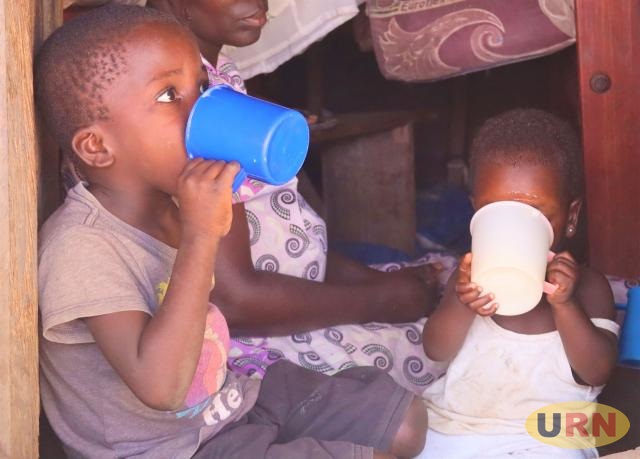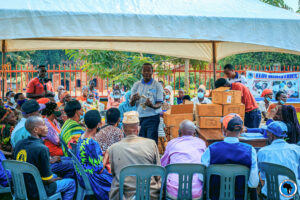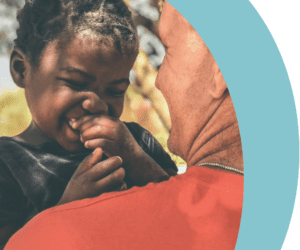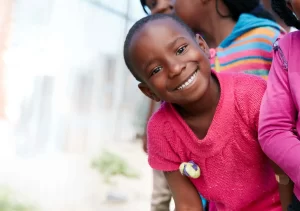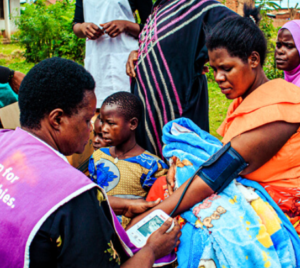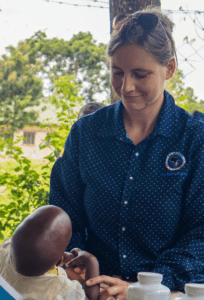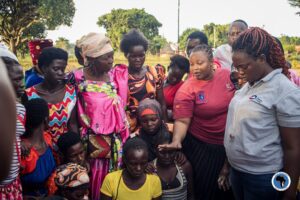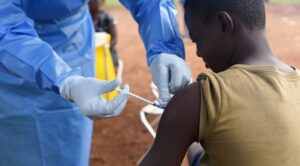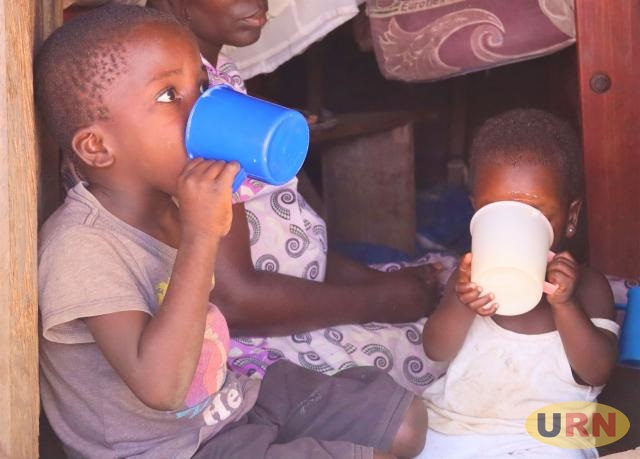
Kampala, Uganda | THE INDEPENDENT | In a stark warning, experts have highlighted the detrimental impact of poor nutrition on public health, as it fuels a silent epidemic of non-communicable diseases (NCDs) in Uganda. Samalie Namukose, Assistant Commissioner, Nutrition Division at the Ministry of Health, said that the rise in NCDs is closely linked to dietary patterns characterized by excessive consumption of processed foods high in sugar, salt, and unhealthy fats while lacking in essential nutrients.
Namukose added that dietary choices, compounded by sedentary lifestyles, contribute to a range of health problems, including obesity, hypertension, and metabolic disorders thus emphasizing an urgent need for concerted action to address the root causes of malnutrition and its far-reaching consequences. “Something has been done but more is needed to be done. In light of the compelling evidence linking dietary patterns and nutrition issues to the rise of non-communicable diseases, we must prioritize concerted action to address the root causes of malnutrition and its far-reaching consequences,” she noted.
The observations were made during the ongoing Third National Nutrition Forum, a high-level gathering that has brought together various stakeholders from government ministries, departments involved in the food and nutrition value chain, development partners, and other key actors. The forum convened by the office of the prime minister with support from UNICEF serves as a platform for collaborative discussions and strategic planning aimed at addressing the multifaceted challenges posed by malnutrition in Uganda.
Several speakers at the forum stressed the urgent need for coordinated efforts to tackle the root causes of poor nutrition and its cascading effects on public health. They advocated for comprehensive interventions that encompass not only food security but also education, healthcare access, and socioeconomic empowerment, particularly for marginalized communities.
Dr. Charles Oyoo who was giving a status of nutrition-related non-communicable disease at the forum noted that Many of these are nutrition-related citing diseases such as heart disease, cancer, chronic respiratory disease, and diabetes, which are currently leading causes of death worldwide and represent an emerging global health threat.
“Non-communicable diseases are responsible for one-third of deaths among adults in Uganda. The number of NCD cases is on the rise and we should all work together to reverse this trend. Our collective response must be swift and holistic,” he noted underscoring the importance of concerted action to reverse the tide of non-communicable diseases fueled by inadequate nutrition.
Peter Rukundo, a Nutritionist at Kyambogo University, emphasized the necessity of collaborative efforts from individuals to monitor their lifestyles and dietary choices, particularly concerning children’s nutrition. Additionally, he stressed the critical importance of implementing quality assurance measures and regulations to mitigate the consumption of foods associated with non-communicable diseases, thereby alleviating the growing burden on the country’s healthcare system.
Rukundo further highlighted that alongside the issue of inadequate nutrition leading to non-communicable diseases, another significant concern is malnutrition, especially among children. He pointed out that this problem is exacerbated by the availability of foods in markets that are heavily marketed to minors despite being detrimental to their health and well-being.
“We’re facing a ticking time bomb, and regulation is crucial. By implementing measures to regulate nutrition and advertisements, we can mitigate the burden and safeguard the health and well-being of future generations,” he noted.
Professor Ezekiel Mupere, a senior lecturer at Makerere University with a special interest in micronutrients, emphasized that nutrition issues are significant contributors to micronutrient deficiency. Often referred to as “hidden hunger,” this deficiency not only compromises health but also diminishes individuals’ potential to make meaningful contributions to society and the economy.
Professor Mupere added that this deficiency is responsible for maternal and child deaths, night blindness, mental retardation, physical disabilities, poor brain development, impaired spinal cord development, and frequent infections due to low immunity.
Unfortunately, Dr. Isaac Ssewanyana, Director of Laboratory Services, expressed concern over the current lack of data on micronutrient deficiency in the country. This deficiency is attributed to the lack of access to technologies needed to measure the relevant markers, leading to delays in identifying the extent of the burden.
Available data reveals that nearly 1 in every 3 children under the age of five in Uganda suffer from stunted growth, a figure that escalates with age, reaching its peak at 37 percent among children aged 18 to 35 months. This burden costs the country an estimated 1.8 trillion annually. Additionally, another pressing nutrition concern is the prevalence of anemia, affecting 53 percent of children under five and 32 percent of women of reproductive age.
Uganda’s cost of hunger in Africa study suggests that reducing undernutrition by half by 2025 could result in an annual average saving of 176 billion shillings for the country. Furthermore, reducing stunting levels to 10 percent and underweight to 5 percent could lead to an average saving of 260 billion Shillings.
The problem is not only among children. For instance, according to the World Health Organization (WHO), Uganda faces a growing challenge of being overweight and obese, with approximately 1 in 10 adult Ugandans and 10.4 percent being overweight.
Dr. Agnes Erzse, nutrition specialist at UNICEF who attended the forum virtually, notes that the issues of overweight and obesity among children, and adults as well, can be handled through for starters Food system and food environment are the key entry points to curb exposure to unhealthy foods and beverages with regulation as awareness might not be enough.
“Behavior change, communication, awareness-raising, and public education complements education but they are not substitutes,” she noted before recommending that government needs to undertake a landscape analysis of policies and programs on the issue.
Meanwhile, participants also urged the government to boost funding across the entire value chain of nutrition and to persist in raising awareness of nutrition for people of all ages. Additionally, they advocated for expanding the coverage of community-based nutrition interventions.
As the forum continues, attendees are actively involved in generating practical solutions and establishing partnerships to facilitate positive changes in nutrition, food security, and related matters. This forum convenes once every two and a half years.
******
Author: Bagombeka Job
Credit:: The Independent Uganda

